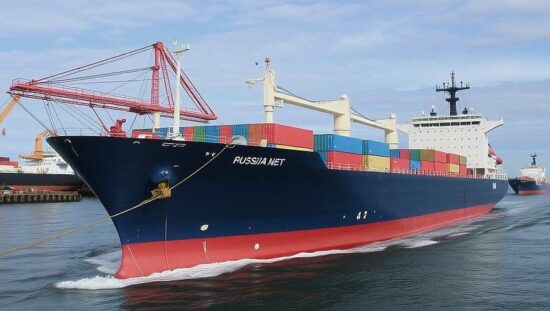The German government and the European Union are reportedly considering further sanctions against Russia, should Moscow not be willing to agree to a ceasefire in Ukraine. As reported by “Bild” (Wednesday edition) citing sources from the German government and EU circles, three main sectors are being targeted. These include the energy sector, which involves oil, gas and uranium, the shipping sector, particularly the Russian shadow fleet and the banking sector. According to “Bild”, in the shipping sector, insurance for shipping companies and ships in the so-called shadow fleet, which are used by Russia to illegally transport oil around sanctions, are being targeted.
Regarding the banking sector, new punitive measures for individual banks operating in Russia or involved in sanctions circumvention are being discussed, as well as the possibility of temporarily disconnecting Russia from the Swift payment system. The newspaper also reports that in the energy sector, gas imports from Russia to the EU should be reduced to zero. Currently, around 20% of natural gas in the EU comes from Russia.
These potential sanctions are part of an effort to apply pressure on Russia to halt its military aggression in Ukraine and find a peaceful resolution to the ongoing conflict. The EU and Germany have been strong supporters of Ukraine and have imposed several rounds of sanctions on Russia since the annexation of Crimea in 2014. However, the implementation of these new measures is still under consideration and may depend on the developments in the situation in Ukraine.
Should these sanctions be implemented, they would have significant economic consequences for both Russia and the European countries involved. The reduction or elimination of gas imports from Russia would affect the energy supply and prices in the EU, while the banking sector sanctions could disrupt trade and financial transactions between Russia and the EU.
In conclusion, the German government and the European Union are considering further sanctions against Russia, targeting the energy, shipping and banking sectors. These measures aim to put pressure on Russia to end its aggression in Ukraine and find a peaceful solution to the ongoing conflict. However, the implementation of these sanctions is still under consideration and may depend on the developments in the situation in Ukraine. The potential economic consequences of these sanctions should not be underestimated, as they could have significant impacts on both Russia and the European countries involved.





